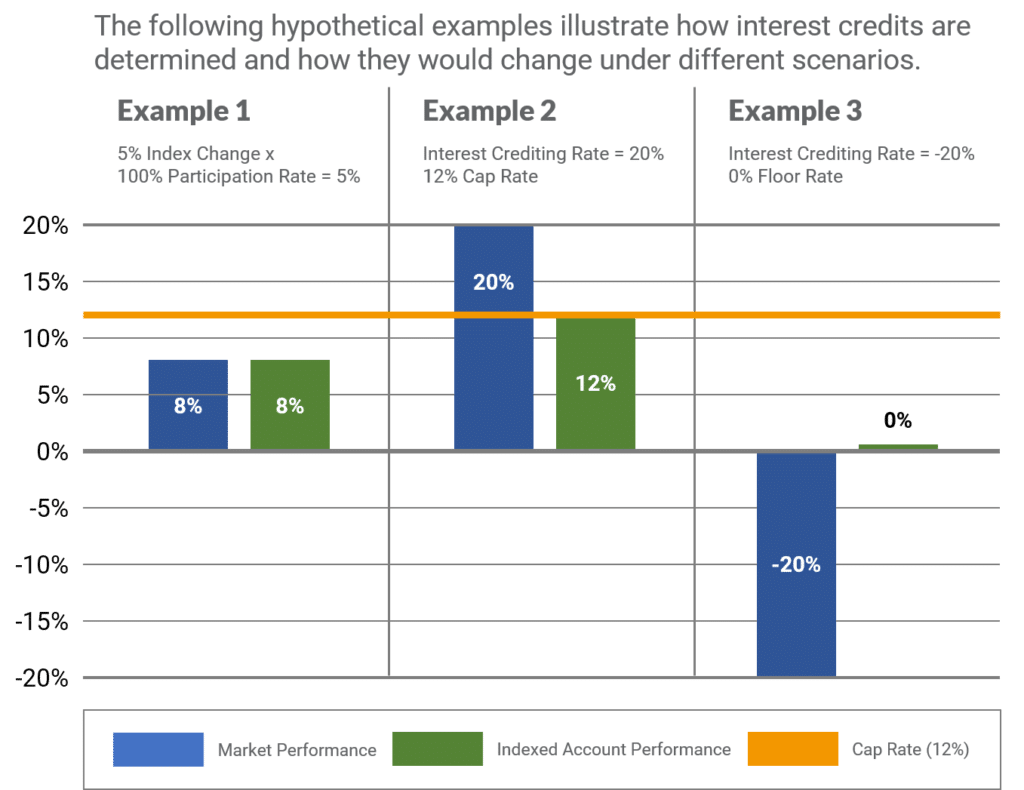All Categories
Featured
Table of Contents
1), commonly in an attempt to beat their group standards. This is a straw man disagreement, and one IUL individuals love to make. Do they contrast the IUL to something like the Lead Overall Stock Market Fund Admiral Show no load, an expense ratio (ER) of 5 basis factors, a turn over ratio of 4.3%, and an outstanding tax-efficient record of circulations? No, they contrast it to some awful actively managed fund with an 8% lots, a 2% ER, an 80% turn over ratio, and a dreadful record of temporary funding gain distributions.
Shared funds typically make yearly taxed circulations to fund owners, also when the value of their fund has dropped in worth. Common funds not only need income coverage (and the resulting yearly tax) when the common fund is increasing in worth, however can additionally enforce revenue tax obligations in a year when the fund has actually gone down in value.
You can tax-manage the fund, collecting losses and gains in order to lessen taxed circulations to the capitalists, however that isn't somehow going to transform the reported return of the fund. The possession of mutual funds might require the common fund owner to pay approximated tax obligations (flexible premium life).

IULs are easy to position so that, at the proprietor's fatality, the beneficiary is not subject to either revenue or inheritance tax. The very same tax obligation reduction strategies do not work virtually too with common funds. There are many, frequently pricey, tax obligation catches related to the timed purchasing and marketing of common fund shares, traps that do not put on indexed life Insurance policy.
Opportunities aren't very high that you're mosting likely to undergo the AMT as a result of your common fund circulations if you aren't without them. The remainder of this one is half-truths at finest. While it is real that there is no earnings tax obligation due to your successors when they inherit the profits of your IUL plan, it is also true that there is no income tax due to your successors when they acquire a mutual fund in a taxable account from you.
Universal Life Insurance Calculator Cash Value
There are far better means to stay clear of estate tax obligation concerns than buying financial investments with reduced returns. Shared funds may cause revenue taxes of Social Safety and security advantages.

The growth within the IUL is tax-deferred and may be taken as tax obligation free revenue through finances. The plan owner (vs. the mutual fund supervisor) is in control of his/her reportable income, thus enabling them to minimize or even get rid of the taxes of their Social Safety benefits. This is terrific.
Here's one more very little issue. It holds true if you buy a shared fund for say $10 per share right before the circulation day, and it distributes a $0.50 distribution, you are after that going to owe tax obligations (possibly 7-10 cents per share) in spite of the fact that you haven't yet had any gains.
In the end, it's really regarding the after-tax return, not just how much you pay in taxes. You're additionally most likely going to have more cash after paying those taxes. The record-keeping demands for owning shared funds are substantially much more complicated.
With an IUL, one's documents are maintained by the insurance coverage company, duplicates of annual statements are sent by mail to the proprietor, and distributions (if any) are totaled and reported at year end. This set is likewise type of silly. Of training course you need to keep your tax obligation records in instance of an audit.
Universal Underwriting
Rarely a reason to get life insurance. Shared funds are commonly part of a decedent's probated estate.
Furthermore, they go through the delays and expenditures of probate. The profits of the IUL policy, on the other hand, is constantly a non-probate circulation that passes beyond probate directly to one's named recipients, and is therefore exempt to one's posthumous creditors, undesirable public disclosure, or comparable delays and expenses.
Medicaid incompetency and life time income. An IUL can supply their proprietors with a stream of revenue for their whole lifetime, no matter of exactly how long they live.
This is helpful when arranging one's events, and transforming possessions to revenue prior to an assisted living home confinement. Mutual funds can not be converted in a similar fashion, and are virtually constantly thought about countable Medicaid properties. This is one more dumb one promoting that poor individuals (you recognize, the ones who require Medicaid, a federal government program for the bad, to pay for their assisted living facility) need to make use of IUL rather of mutual funds.
Adjustable Life Insurance Vs Universal Life Insurance
And life insurance policy looks horrible when compared rather against a pension. Second, people who have cash to get IUL above and past their retired life accounts are mosting likely to need to be terrible at managing cash in order to ever before qualify for Medicaid to pay for their assisted living facility expenses.
Chronic and incurable health problem rider. All policies will permit a proprietor's simple accessibility to cash from their policy, usually waiving any abandonment fines when such individuals suffer a major disease, require at-home care, or come to be restricted to a nursing home. Shared funds do not supply a similar waiver when contingent deferred sales fees still put on a shared fund account whose owner requires to market some shares to money the prices of such a keep.
Fixed Indexed Universal Life
You get to pay even more for that benefit (biker) with an insurance coverage plan. Indexed universal life insurance coverage gives fatality advantages to the beneficiaries of the IUL proprietors, and neither the proprietor neither the recipient can ever before shed money due to a down market.
Now, ask on your own, do you really require or want a death benefit? I certainly don't need one after I reach financial independence. Do I want one? I suppose if it were economical sufficient. Of training course, it isn't economical. Typically, a purchaser of life insurance coverage pays for real price of the life insurance benefit, plus the prices of the policy, plus the revenues of the insurer.
Nationwide Universal Life
I'm not completely certain why Mr. Morais included the entire "you can't lose cash" once again below as it was covered rather well in # 1. He simply wished to repeat the most effective selling point for these things I expect. Again, you don't shed small dollars, yet you can lose genuine dollars, in addition to face significant chance cost because of low returns.

An indexed universal life insurance policy proprietor might trade their plan for a completely different policy without activating income taxes. A common fund owner can stagnate funds from one mutual fund firm to an additional without marketing his shares at the previous (thus activating a taxable occasion), and buying new shares at the last, usually subject to sales fees at both.
While it holds true that you can exchange one insurance coverage plan for an additional, the factor that individuals do this is that the very first one is such a terrible policy that also after buying a brand-new one and experiencing the very early, negative return years, you'll still appear in advance. If they were marketed the ideal plan the very first time, they shouldn't have any kind of desire to ever exchange it and experience the very early, negative return years once more.
Latest Posts
Net Payment Cost Index Life Insurance
Best Iul Insurance Companies
Index Linked Term Insurance